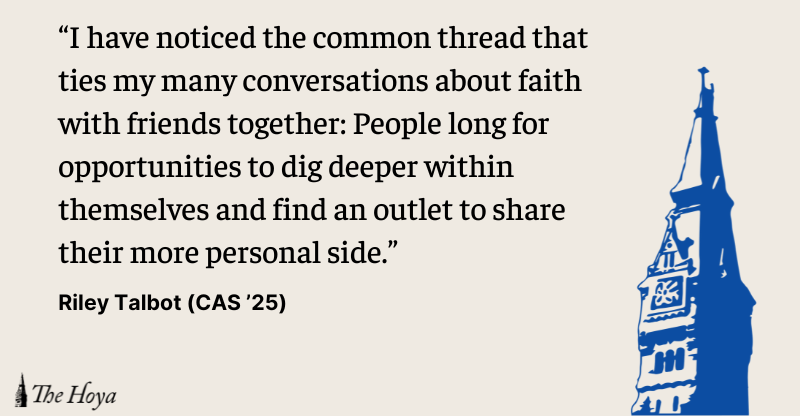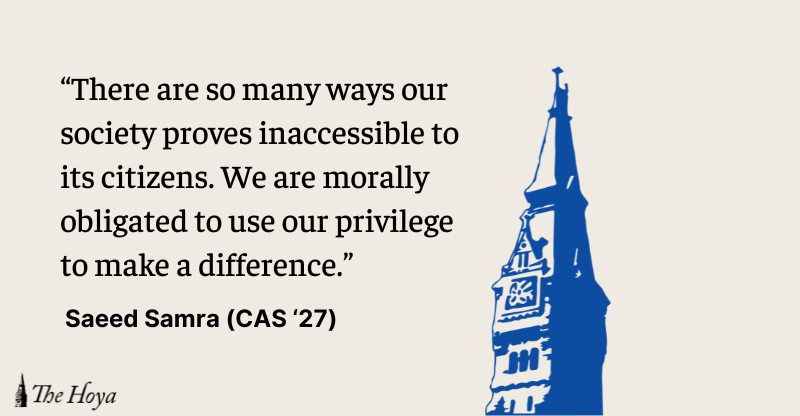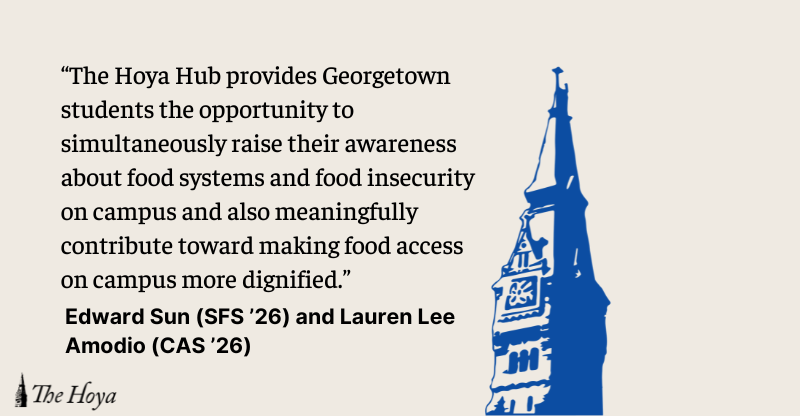Content warning: This article discusses sexual assault on campus. Please refer to the end of the article for resources on and off campus.
Accustomed to Georgetown’s often-uncomfortable relationship with sex, many students’ first reaction upon hearing that MedStar Georgetown University Hospital does not offer rape kits is righteous anger. Many assume that because MedStar Georgetown is a hospital affiliated with a Catholic university, and thus does not offer services like refilling birth control prescriptions, the absence of rape kits reflects religious values even though sexual assault is independent of the consensual act of sex.
In reality, MedStar Georgetown does not offer sexual assault forensic examinations — more commonly known as rape kits — as part of an intentional design for survivor care organized by Washington, D.C. The District centralizes sexual assault survivor care at MedStar Washington Hospital Center, located near Howard University, to provide the best care possible for survivors and minimize the continued trauma that the treatment process can bring on.
The lack of education on this campus regarding sexual assault forensic examination access, not their unavailability at MedStar Georgetown, is the real injustice.
While it is frustrating that the university hospital cannot provide this vital service — especially given the high sexual assault rates on college campuses, and at Georgetown specifically — this policy and the work of the D.C. Forensic Nurse Examiners are parts of a larger effort to center these processes on survivors.
Providing sexual assault forensic examinations requires hospitals to retain highly trained staff, maintain relationships with law enforcement and provide resources to survivors that extend beyond those offered to other patients. As a result, these programs are wildly expensive.
Realistically, MedStar Georgetown does not have the resources to provide a sexual assault forensic examination program that would do justice to survivors. Thus, it makes sense that D.C. officials have decided to direct all federal funds to MedStar Washington Hospital Center, an institution that can ensure their services are fully compliant with the standards stipulated in the Violence Against Women Act.
It is true that steps have been taken to increase access to existing resources. For example, if a survivor wants a sexual assault forensic examination, the Network for Victim Recovery of D.C. can provide free Uber rides to MedStar Washington hospital advocates and continued holistic services for survivors. Georgetown University Police Department can also drive survivors there if so desired.
Still, the lack of information on campus about access to sexual assault forensic examinations is startling. A search of “rape” on the Georgetown hospital’s website yields no results or information on how to obtain an examination.
No survivor should ever walk to MedStar Georgetown with the intention of receiving a forensic examination and be turned away, especially because of the time-sensitive nature of forensic examinations and the trauma they can provoke.
This information should be common knowledge on campus, and the hospital website should lead students looking for these services to the information they need to receive the proper care.
It is not necessarily a problem that students cannot obtain a sexual assault forensic examination at MedStar Georgetown — the reasons that D.C. decided to centralize care for survivors are entirely understandable. But it is a problem and injustice in itself that the hospital neglects to include this information on its website, the most accessible source of information, or to promote it adequately to students.
A quick addition to the hospital website could easily include information about how survivors can get to Medstar Washington Hospital Center, the services they can access there and the contact information of the Network for Victim Recovery of D.C.
Nevertheless, our attempts to get the hospital to add this information have been futile. Since first contacting the hospital about this issue in February, there has still been no change to the website. This much-needed addition to the hospital website is the first step toward creating a campus where this information is universally known.
Hopefully, with the increased discussion about sexual assault on campus brought about by the campus climate survey and the addition of now-mandatory Bringing in the Bystander training — as well as the potential changes to the MedStar Georgetown website and improved dissemination of how survivors can receive the care they deserve — we can create a survivor-centric community where obstacles to resources are minimized and services for survivors are not an afterthought.
If you or anyone you know would like to obtain a sexual assault forensic examination call the Network for Victim Recovery of D.C. at (844) 443-5732. On-campus resources include Health Education Services and CAPS, and additional off-campus resources include the D.C. Rape Crisis Center (202-333-7273) and the D.C. Forensic Nurse Examiner Washington Hospital Center (800-641-4028).
Rachel Biggio and Talia Parker are sophomores in the College.



















